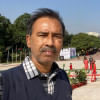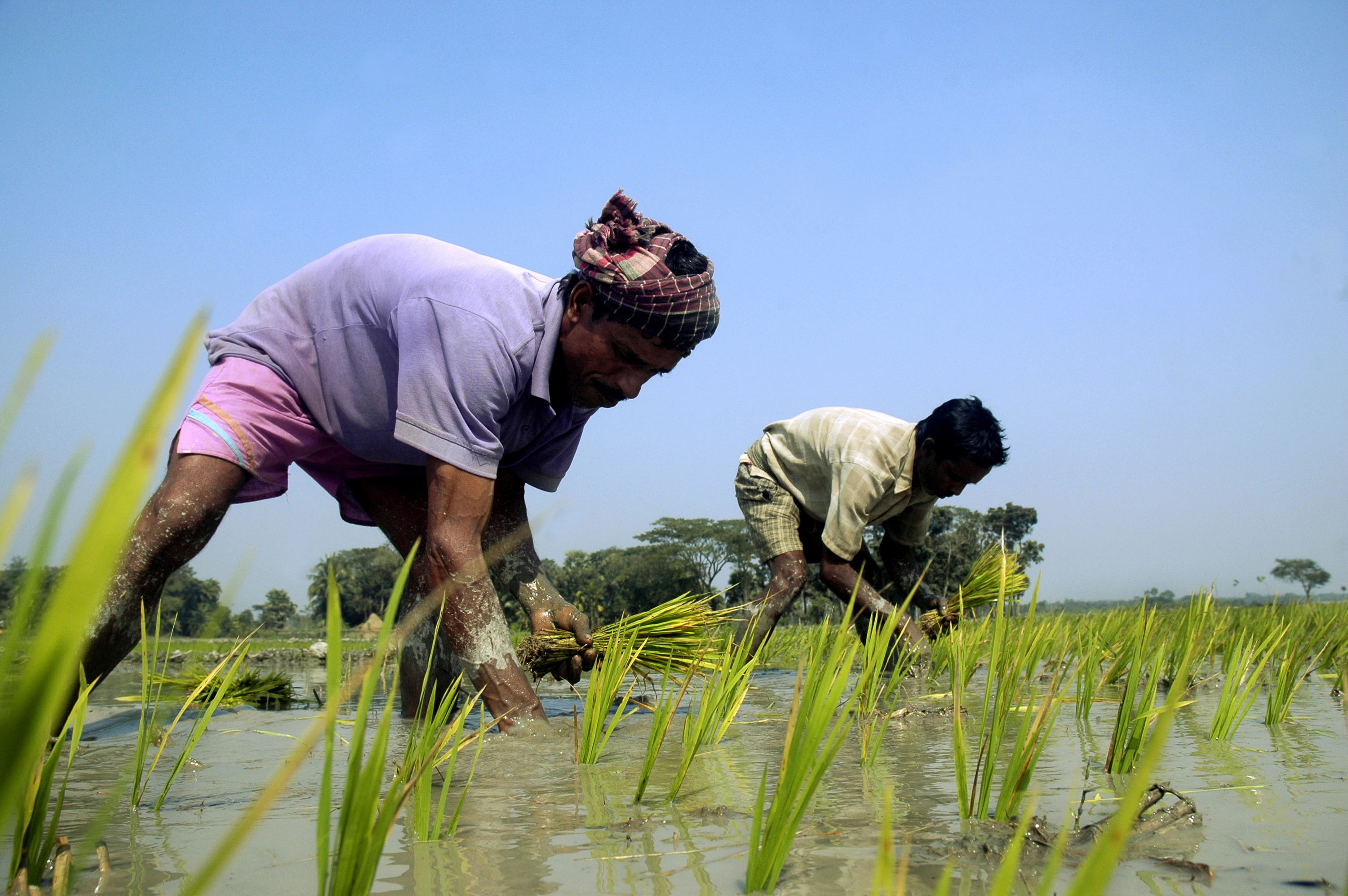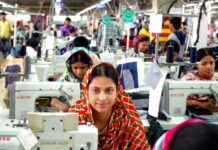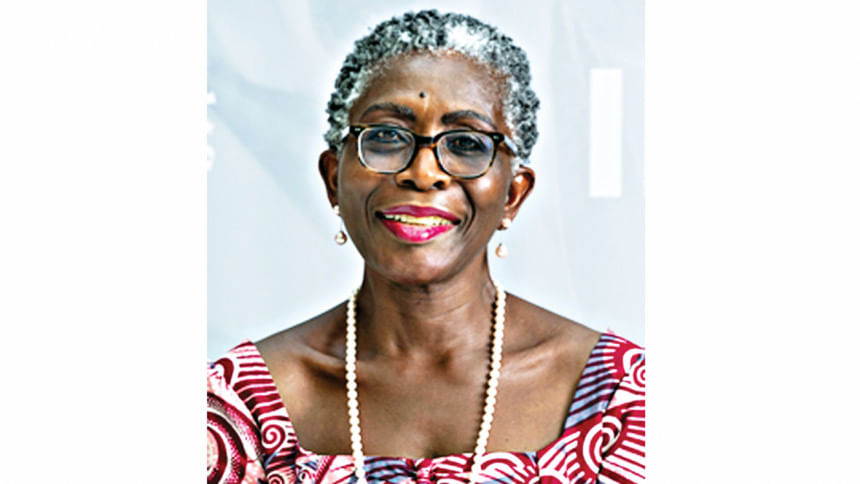
The prospective loan programme of the International Monetary Fund will prime Bangladesh for graduation from the least-developed country bracket and reach middle-income country status by 2031, said the lender’s top official.
In the past decade, Bangladesh achieved impressive economic growth and social development, making steady progress in reducing poverty and across many indicators of the Sustainable Development Goals, Antoinette Monsio Sayeh, the deputy managing director of IMF, told The Daily Star in an interview on Monday.
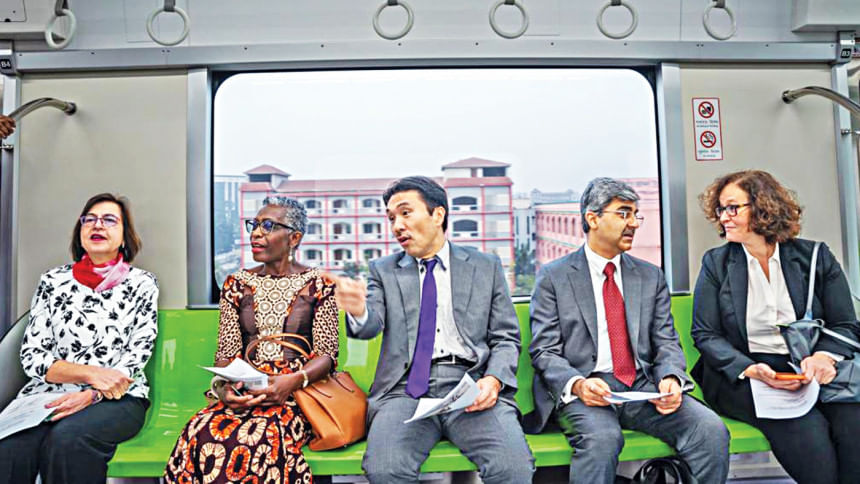
“Well, I am coming away from this visit very energised by the clear dynamism you see out there and the huge potential that Bangladesh has.”
“To successfully graduate from the LDC status and achieve middle-income status by 2031, it is important to build on these past successes and address structural issues to accelerate growth, attract private investment, enhance productivity and build climate resilience. We believe the programme will help to do just that.”
Sayeh, who is in Bangladesh on a four-day tour as part of her Asia trip, cited two areas that pose substantial risks to the economy and need much attention: revenue mobilisation and the financial sector.
At around 9 percent of GDP, Bangladesh’s tax-to-GDP ratio — at around 9 percent of GDP — is one of the lowest in the world.
“We think it can be considerably increased by looking at tax exemptions,” she said, while calling for modernisation of the tax system and improvements in revenue collection.
Not making sincere, proactive efforts on the revenue mobilisation front will make the going difficult for the government as it looks to meet its critical spending needs in the areas of social protection, health, education and infrastructure to create a conducive environment for growth.
In a similar vein, not fixing the financial sector will have a similar undesirable outcome in the form of crowding out private sector credit allocation.
“Bangladesh needs a more efficient financial sector to improve credit allocation to the most productive economic sectors.”
The vulnerabilities in the banking sector, particularly in the state-owned bank (SoBs), were exacerbated by the COVID-19 shock, said Sayeh, who was a finance minister in post-conflict Libya.
Structural weaknesses in supervision, regulation and governance, coupled with high defaulted loans and low capital in SoBs could be a drag on medium-term growth prospects.
The risk of defaulted loans is increasing and the authorities need to be very alert to that and take action regarding the matter.
Some key reform priorities include strengthening the corporate governance of banks including the role of independent directors; resetting the classification and provisioning requirements in line with Basel standards, including the treatment of rescheduled and defaulted loans; stronger enforcement of the current prudential framework by the central bank.
Legal features that allow delayed loan repayment should be addressed, and legal measures should be instituted to support stronger enforcement of creditor rights and debtor incentives to repay.
Reforms in monetary and financial policies such as a review of directed lending and regulated interest rates will support the necessary strengthening of the banking sector.
Developing further the bond markets should also be a priority to meet the growing financing needs, especially after Bangladesh graduates from the LDC status in 2026.
Further reforming the National Savings Certificates system and developing a secondary market for government securities will be important, she said.
Another area where the government needs to retrench is in handing out subsidies to ensure sustainable and equitable growth.
“If you look at the fuel prices, it is the people who drive cars, people who have air conditioners, these people who are better off are benefitting the most from those subsidies.”
Currently, a significant part of the budget is spent on subsidies and some of those subsidies are not benefiting the poor very much.
“Paring down those subsidies to give the government an opportunity to have more resources to spend on targeted social safety nets, to safeguard the impact of price increases on the poor is a big part of what we are looking at to make for better spending on education and health and to benefit the poor.”
The IMF programme is aimed at making more fiscal space and giving the authorities an ability to address the needs that are clearly important and to better serve the poor.
The programme also focuses on modernising the monetary policy framework, which will promote greater macroeconomic stability and help better manage inflation. Increased exchange rate flexibility will help rebuild external resilience.
The authorities and IMF staff have worked closely on a programme that is most relevant to Bangladesh’s current economic and social dynamics, she said, adding that the IMF executive board will take a call on the loan proposal on January 30.
“With the significant efforts already taken by the authorities, we expect very strong support.”
The programme will lay the foundation to unlock Bangladesh’s growth potential, harness its demographic dividend and support long-term, inclusive and sustainable growth.
“Well, I am coming away from this visit very energised by the clear dynamism you see out there and the huge potential that Bangladesh has. I was very enthused by the energy I saw and the clear commitment to taking forward the reform efforts. We think that 2023 is going to see a deepening of the reform effort.”
This year is posing to be a difficult one with the IMF’s growth forecast for the global economy being only 2.5 percent. So for an open economy like Bangladesh’s, preserving macroeconomic stability while preventing disruptive adjustments to protect the vulnerable would be imperative.
Policy priorities must focus on containing inflation, softening the impact of these economic disruptions on the vulnerable and building external resilience through continued exchange rate flexibility.
“This will be a year that is somewhat new for Bangladesh in the course of the last 10-plus years.”
Sayeh said now is the time to now start taking forward Bangladesh’s efforts on the climate side, which are also “macro critical”.
Bangladesh also needs to strengthen institutions to meet climate objectives, for instance, to be able to mobilise additional climate financing and support large-scale climate investments.
“Which is why the programme also includes the IMF’s new Resilience and Sustainability Facility that will support this effort. In fact, Bangladesh is the first country in Asia to request IMF financing under this new facility.”

